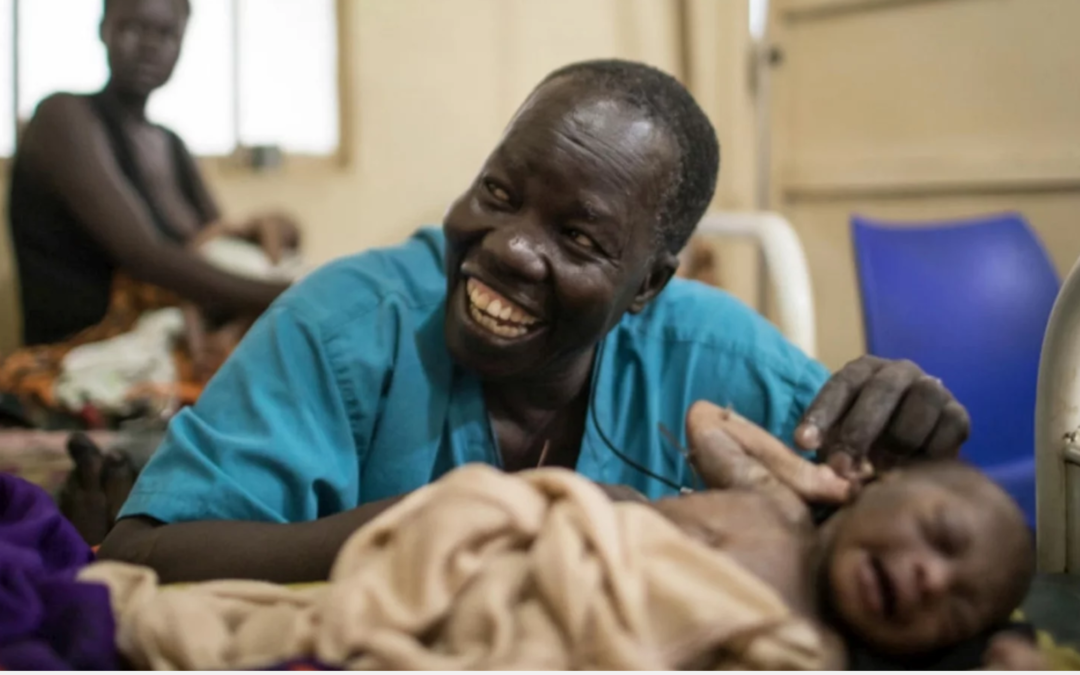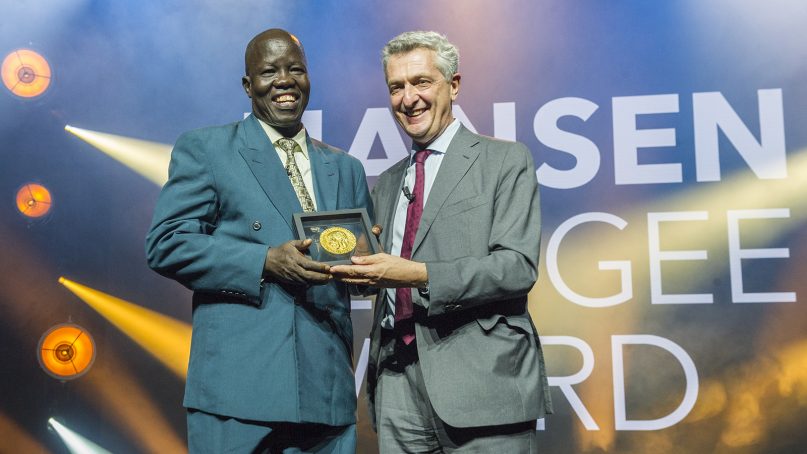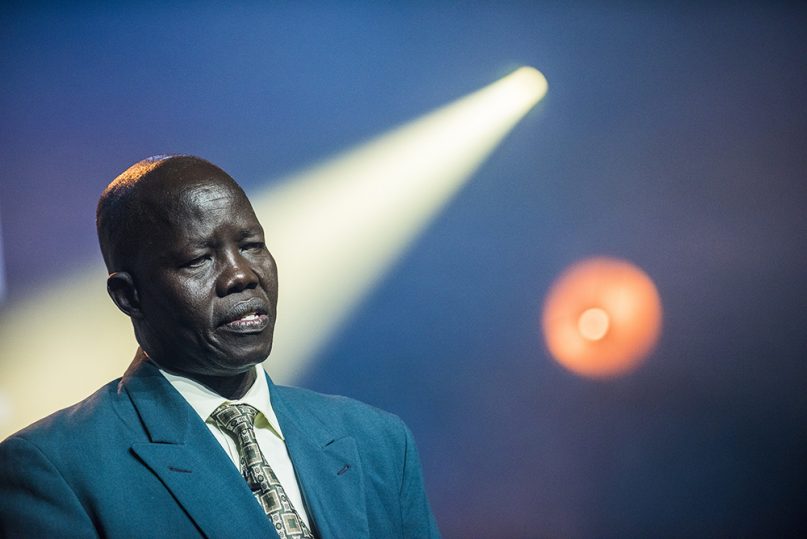
Christian Surgeon who recites Bible and Quran to patients wins UN award
Video Courtesy of UNHCR, the UN Refugee Agency
NAIROBI, Kenya – Dr. Evan Atar Adaha knows that faith matters to many of his patients at the Maban Referral Hospital in South Sudan’s Upper Nile State.
So, before administering the anesthetic for surgery, he recites verses from the Bible or the Quran with patients. Then the 52-year-old surgeon, who is Roman Catholic, follows with a short prayer — according to the patient’s faith — before taking up his surgical knife.
“My faith contributes a lot to my work,” said the surgeon, who is known simply as Atar. “I am inspired by a belief that we are all from one God. As we work, I keep telling my colleagues that we are one family and we must save lives.”
Atar is the only surgeon in Maban Referral Hospital. For more than two decades he has provided medical services to people fleeing war and persecution in Sudan and South Sudan.
Along with his surgical duties, he can also be found pushing the operating table, playing with a newborn or even fixing a light.
On Sundays, he relaxes by going to church.
For his service to refugees, the doctor has been named the United Nations High Commissioner for Refugees (UNHCR) 2018 Nansen Award winner. He received the award Oct. 1 in Geneva, Switzerland.

Dr. Evan Atar Adaha accepts the 2018 Nansen Refugee Award from UN High Commissioner for Refugees Filippo Grandi on Oct. 1, 2018. Atar runs the only functional hospital in Upper Nile State, South Sudan, where he and his team carry out an average of 58 operations per week with limited supplies and equipment. For more than 60 years, UNHCR’s Nansen Refugee Award has recognized those who show outstanding dedication to the refugee cause. © UNHCR/Mark Henley
“Dr. Atar’s work through decades of civil war and conflict is a shining example of profound humanity and selflessness,” said Filippo Grandi, the UN high commissioner for refugees, in a statement. “Through his tireless efforts, thousands of lives have been saved, and countless men, women, and children provided with a new chance to rebuild the future.”
Named after Fridtjof Nansen, a Norwegian explorer and humanitarian, the award honors extraordinary service to refugees, displaced people and the stateless. According to the UNHCR website, the award includes $150,000 to fund a project designed in tandem with the agency.
“I am humbled by this award. It comes with some resources. We will use them to meet our next challenges,” said Atar, who is also the medical director in the 120-bed hospital, located about 600 kilometers southeast of the South Sudan capital, Juba.
Over the years, his hospital — which handles all manner of medical problems, including gunshot wounds, malaria and cesarean sections — has become a lifesaver for more than 200,000 people in the troubled region. Of these, 140,000 are refugees who fled violence in Sudan’s Blue Nile region.
Originally from Torit town in southern South Sudan, Atar studied medicine in Khartoum and later practiced in Egypt. In 1997, he moved to Kurmuk in Blue Nile State at the height of a Sudanese civil war. Amid falling bombs and intense fighting between government forces and rebels, he ran a health center that treated both civilians and fighters.
Increased bombing by the Sudanese air force in 2011 forced Atar and his team to flee with thousands of refugees to Maban, where he continued providing similar services.
“We started from nothing. At one time I had to bring down a door for use as an operating table,” he said.

Dr. Evan Atar Adaha accepts the 2018 Nansen Refugee Award on Oct. 1, 2018, in Geneva, Switzerland. © UNHCR/Mark Henley
The health center eventually grew into a hospital, with assistance from the UNHCR and from Samaritan’s Purse, the international evangelical relief organization run by Franklin Graham. “We still are trying to see how we can expand the hospital to offer more services to the people.”
In South Sudan, health care is often is short supply. There are serious shortages of drugs, equipment and skilled medical personnel. Armed groups also loot medical facilities and have kidnapped, detained and killed doctors and nurses.
When the country became independent in 2011, there were 120 doctors and 100 nurses serving a population of 12 million, according to UNHCR. In Maban, Atar has a 53-member staff, including three other doctors — two from Kenya and one from Uganda.
Atar’s wife and three children live in Nairobi. He sees them only a few times a year.
Most of his time is consumed with keeping the hospital running. Atar says his staff needs more training and equipment. And there’s never enough room for patients.
The hospital’s maternity ward has 30 beds, said Atar. He’d like to see that number doubled. At times, he said, there’s not enough room and maternity patients have to sleep on the floor.
“We still face many challenges,” said Atar.
